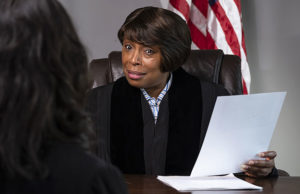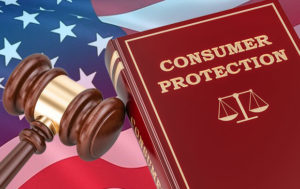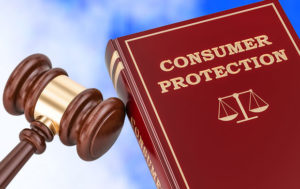
More than eight years ago, the Authors Guild filed a class action against Google on behalf of thousands of authors, claiming that Google infringed the authors’ copyrights. The Authors Guild recently lost its case based on the fair use doctrine that’s generally reserved for nonprofit use by academic institutions, libraries and the press.
The larger impact for Internet users seems to be that search engines have received a legal blessing to make digital copies of materials owned by others, albeit for limited purposes, in spite of the apparent copyright infringement.
This was pointed out in a supporting amicus brief filed by the American Library Association that included this observation:
Thanks to … [Google Books], librarians can identify and efficiently sift through possible research sources, amateur historians have access to a wealth of previously obscure material, and everyday readers and researchers can find books that were once buried in research library archives.
Although Google Books scans complete copies of books to make the content available through the Google search engine, what is available in Google searches are only snippet views of the books.
The copyright laws do not give libraries a legal right to make complete copies of books, but as part of the Google Books project, multiple libraries provided more than 20 million books to Google, which Google then scanned and returned with a digital version back to the contributing library. The authors never gave permission for the digital copies to be made.
The effect of this ruling is to create new law about fair use of copyrighted works for search engines. Google says it has made millions of dollars from advertising on the search results pages, but did not make money from copies or content of the books themselves.
What’s ‘Fair Use’?
Under the U.S. Constitution, authors have a monopoly on making copies — their “copyright” — of their written works, allowing them to monetize their efforts. Section 107 to the Copyright Act includes these four factors to determine “fair use” to allow others to make copies:
- The purpose and character of the use, including whether such use is of commercial nature or is for nonprofit educational purposes;
- The nature of the copyrighted work;
- The amount and substantiality of the portion used in relation to the copyrighted work as a whole; and
- The effect of the use upon the potential market for, or value of, the copyrighted work.
Google’s Fair Use Claim
The basis of Google’s fair use defense is that Google makes copies of the books by scanning them as part of its effort to help Internet users find materials using its search engine. Google claims that, for such a purpose, it may scan the books and enter the scans into its search engine.
The lead class action plaintiff is the Authors Guild, which the U.S.’s largest organization of published authors. One of the Authors Guild’s major roles is to advocate for and support the copyright and “contractual interests of published writers” that are members.
Google, as most readers are aware, operates the largest Internet search engine in the world, with more than 67 percent of daily searches in the U.S. and 90 percent of daily searches in the EU. Further, Google admitted in the lawsuit that:Each day, millions of people use Google’s search engine free of charge; commercial and other entities pay to display ads on Google’s websites and on other websites that contain Google ads.
Google is a for-profit entity, and for the year ended December 31, 2011, it reported over $36.5 billion in advertising revenues.
Ultimately, the court found against the Authors Guild because of the significant benefit to the world, described in more detail below, by allowing Google a “fair use” of the copyrighted works by copying and making only snippets available in searches.
What Happened in the Case?
On Nov. 14, 2013, U.S. Circuit Judge Denny Chin of the Second Circuit granted Google’s motion for summary judgment, including the following ruling:
Google is entitled to summary judgment with respect to plaintiffs’ claims based on the copies of scanned books made available to libraries. Even assuming plaintiffs have demonstrated a prima facie case of copyright infringement, Google’s actions constitute fair use here as well. Google provides the libraries with the technological means to make digital copies of books that they already own. The purpose of the library copies is to advance the libraries’ lawful uses of the digitized books consistent with the copyright law.
Judge Chin’s ruling also included the following statements about the “significant public benefit” of Google Books:
It advances the progress of the arts and sciences, while maintaining respectful consideration for the rights of authors and other creative individuals, and without adversely impacting the rights of copyright holders.
It has become an invaluable research tool that permits students, teachers, librarians, and others to more efficiently identify and locate books.
It has given scholars the ability, for the first time, to conduct full-text searches of tens of millions of books.
It preserves books, in particular out-of-print and old books that have been forgotten in the bowels of libraries, and it gives them new life.
It facilitates access to books for print-disabled and remote or underserved populations.
It generates new audiences and creates new sources of income for authors and publishers. Indeed, all society benefits.
Apparently the Authors Guild intends to appeal Judge Chin’s ruling, but who knows how that will turn out. As it stands now, Google won a major victory for Internet search engine consumers who rely on Google Books, not to mention libraries that want access to old, relatively rare and/or inaccessible books that may be out of print.
But Wait, There’s More…
In 2010, the American Society of Media Photographers created another class and joined the Authors Guild existing case against Google. Their class action was brought on behalf of photographers and graphic artists and includes the Graphic Artists Guild, the Picture Archive Council of America, the North American Nature Photography Association and Professional Photographers of America.
These photograph and graphic-art owners were not seeking damages, but rather only to enjoin Google from using their works. It is important to note that Judge Chin’s ruling only applied to the claims of the Authors Guild.
In its April 7, 2010, complaint, ASMP alleged that Google infringed the plaintiffs’ visual works — that is, “original works such as photographs, illustrations, graphic art, and other visual art” in the books and periodicals that Google copied, and that “Google is engaging in massive copyright infringement” by:
(i) scanning and creating in a digital copy of … Visual Works … absent the necessary permissions or grants of rights from the exclusive rights holders in this Visual Works,
(ii) storing for itself a digital copy of the Visual Works contained in such books and periodicals, and
(iii) distributing and publicly displaying the Visual Works in such books and periodicals.
It is too early to really know the full impact of the ruling in the Google Books case since the Authors Guild plans to appeal and the ASMP claims are still pending in the case. One possibility is that other Internet businesses may rely on the fair use ruling in the Google Books/Authors Guild case to commercialize other copyrighted works in unique ways that may be challenged in future copyright litigation.












































Judge Denny Chin ought to have tried using Google Search and Google Books to see whether he could do a student’s homework reading without purchasing the text book.
I did. If a ninth grade student’s homework assignment is to read six pages, Google Books allows anyone to read at least 4 consecutive pages, then a page is censored, and the next four are available.
In some cases, more of the book is available, such as the entire index and contents.
A search using a different keyword may turn up at least part of the missing pages. A Google Search based on a key phrase from there may turn up a link to the .pdf of the entire work on a pirate site.
Based on a test such as I conducted (looking for a book I had legally purchased in hardback because my purpose was to test the judgement), I have to conclude that the wool was pulled over Judge Denny Chin’s eyes, and the Google Books project gives away far too much of textbooks for it to be in any way "Fair" to authors, publishers, honest students and their parents.
Google Books appears to me to give away 4 to 6 pages for every 1 withheld, which is the inverse of what Fair Use ought to be. As I see it, a publisher’s only recourse would be either to change editions every year, which will increase their costs, and the cost to honest students of buying the text, while destroying the honest resale market for gently used physical textbooks, or else to put the ebook on Amazon for rental.
This is not in my view "Fair Use" pursuant to at least two of the criteria for what Fair Use is.